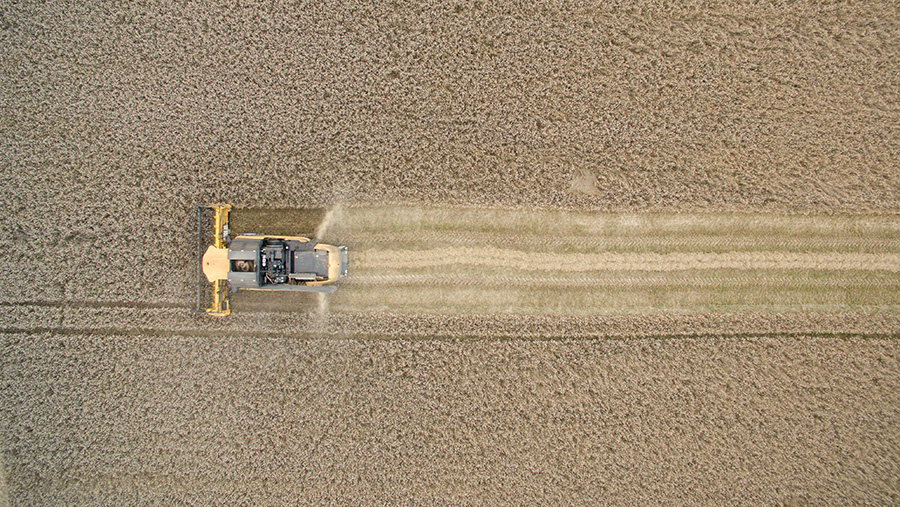‘More than 50% of UK’s food and feed sourced overseas’
 © Ed Stone/Rex Shutterstock
© Ed Stone/Rex Shutterstock More than half of the UK’s food and feed is sourced from abroad, increasing the environmental impact on other poorer countries, a study has found.
Researchers say the UK’s food self-sufficiency has decreased substantially over recent decades, as more food and animal feed are imported compared with 25 years ago.
Published in the latest Journal of the Royal Society Interface, it also shows that the environmental impact of the UK’s food is increasingly “outsourced” to other regions, including South America, south-east Asia and the EU.
See also: Back British Farming Day highlights farmers’ plight
The research team calculated how much cropland was needed to produce the UK’s food and animal feed – known as the “cropland footprint” – and the emission of greenhouse gas emissions from synthetic and organic fertilisers, rice cultivation and land use change.
They found that since 1986 the total cropland footprint has increased by 23% and that almost 70% of the total cropland footprint is now located overseas.
Meanwhile, the study found levels of greenhouse gases emitted on foreign soils to produce the UK’s food and feed have risen from 50% in 1987 to 62% in 2008.
Higher yields and lower fertiliser use have helped lower the domestic impact of agriculture on greenhouse gases, say the researchers.
But because the UK is increasingly sourcing more of its food and feed from overseas, the environmental consequences of UK food imports are increasing.
“These results imply that the UK is increasingly reliant on external resources and that the environmental impact of its food supply is increasingly displaced overseas”
Henri de Ruiter, James Hutton Institute and the University of Aberdeen
Henri de Ruiter, PhD student at the James Hutton Institute and the University of Aberdeen, and lead author of the study, said: “The UK is currently importing over 50% of its food and feed, whereas 70% and 64% of the associated cropland and greenhouse gas emissions (GHGE) impacts, respectively, are located abroad.
“These results imply that the UK is increasingly reliant on external resources and that the environmental impact of its food supply is increasingly displaced overseas.”
However, the report found the UK could increase its self-sufficiency in food and feed to as much as 100%.
It concludes: “Theoretically, the UK could achieve full self-sufficiency; however, this would imply drastic shifts in consumption patterns, away from stimulant crops, animal products and many types of fruit and vegetables, which may not be feasible or acceptable.”
Back British Farming
The NFU has repeatedly raised concerns about the UK’s falling levels of self-sufficiency in food.
Its award-winning Back British Farming campaign highlights the need for greater UK self-sufficiency to provide a viable future for British farmers and decrease the country’s reliance on exports.
According to the NFU, the UK is 62% self-sufficient in food. But unless trends change, figures suggest this will fall to 53% by the mid 2040s when the UK is predicted to become the most populous country in the EU at 77 million people.
NFU president Meurig Raymond said: “If you want great British food tomorrow, then buy great British food today.
“Nobody would want a situation where Britain produced less than half the food it needs, we need action now to ensure that the British public – who tell us time and time again that they want to buy British – have that option in the future.”
